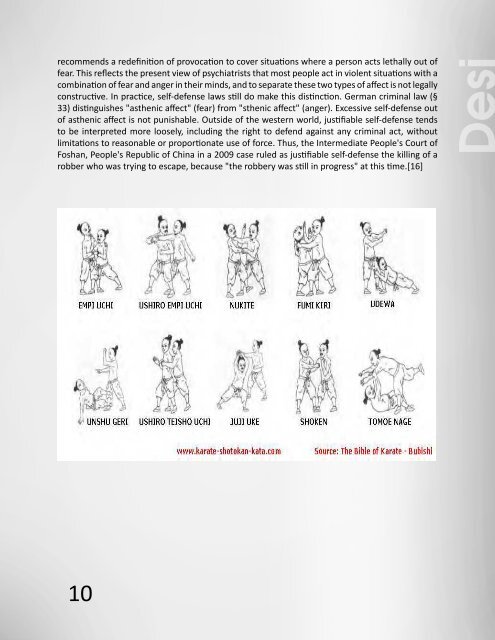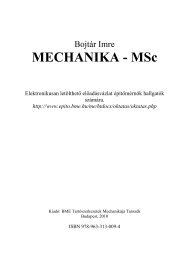on self-defense 1
on self-defense 1
on self-defense 1
- No tags were found...
You also want an ePaper? Increase the reach of your titles
YUMPU automatically turns print PDFs into web optimized ePapers that Google loves.
ecommends a redefiniti<strong>on</strong> of provocati<strong>on</strong> to cover situati<strong>on</strong>s where a pers<strong>on</strong> acts lethally out of<br />
fear. This reflects the present view of psychiatrists that most people act in violent situati<strong>on</strong>s with a<br />
combinati<strong>on</strong> of fear and anger in their minds, and to separate these two types of affect is not legally<br />
c<strong>on</strong>structive. In practice, <strong>self</strong>-<strong>defense</strong> laws still do make this distincti<strong>on</strong>. German criminal law (§<br />
33) distinguishes "asthenic affect" (fear) from "sthenic affect" (anger). Excessive <strong>self</strong>-<strong>defense</strong> out<br />
of asthenic affect is not punishable. Outside of the western world, justifiable <strong>self</strong>-<strong>defense</strong> tends<br />
to be interpreted more loosely, including the right to defend against any criminal act, without<br />
limitati<strong>on</strong>s to reas<strong>on</strong>able or proporti<strong>on</strong>ate use of force. Thus, the Intermediate People's Court of<br />
Foshan, People's Republic of China in a 2009 case ruled as justifiable <strong>self</strong>-<strong>defense</strong> the killing of a<br />
robber who was trying to escape, because "the robbery was still in progress" at this time.[16]<br />
<strong>on</strong> <strong>self</strong>-<strong>defense</strong><br />
Desi<br />
10<br />
11
















